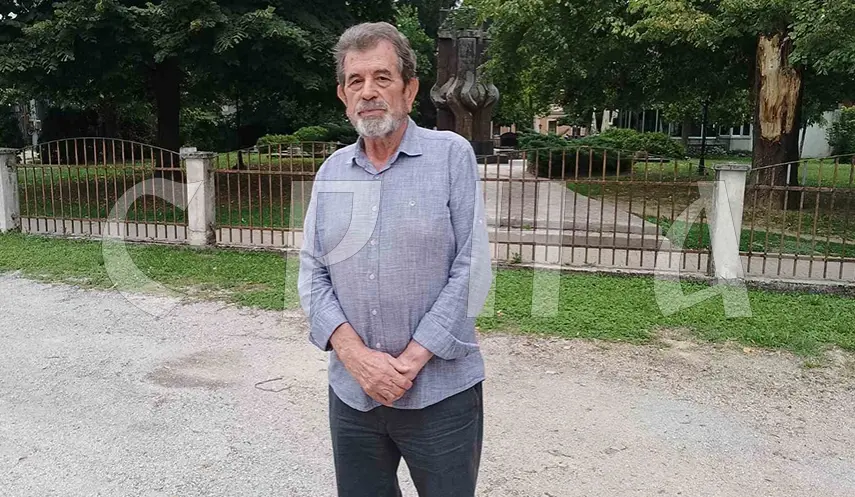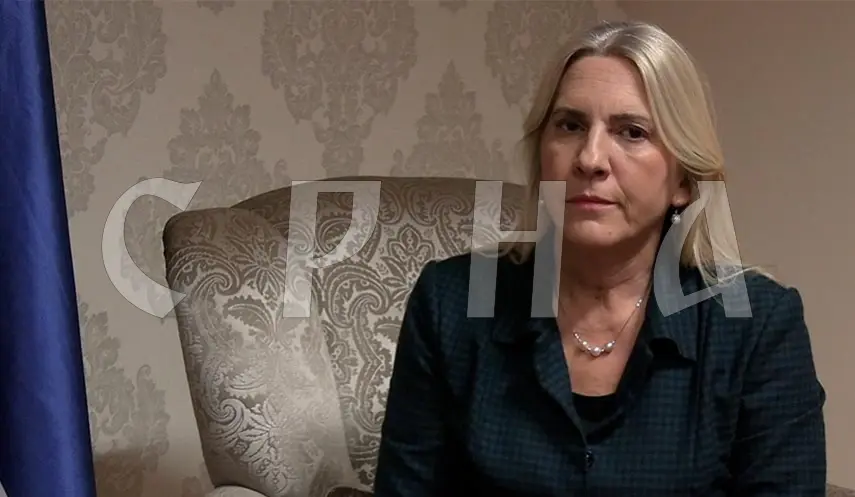ŠTRBAC: WHEREVER CROATIAN ARMY CAME INTO CLOSE CONTACT WITH SERBS, LITTLE WAS LEFT ALIVE
Republika Srpska - Novi Grad - Štrbac
08/06/2025
11:27

NOVI GRAD, AUGUST 6 /SRNA/ – Wherever there was close contact between the Croatian Army and the Serbian people, very little was left alive - they conducted their operations using a scorched earth strategy, said Savo Štrbac, Director of the Veritas Documentation - Information Centre.
Štrbac stated that after all the parades, celebrations, and mega-concerts in Croatia, a clear not welcome message was sent to the few remaining Serbs.
"Our message to them is that this cannot last forever. After all the wars in the Balkans, nothing is truly over. We have entered a kind of third world war, and world wars alter borders and many other things," Štrbac emphasized, speaking from Novi Grad, where he is attending the commemoration of the 30th anniversary of the Croatian military Operation Storm.
He said that for the past 30 years, people have repeatedly asked him how such a large number of people ended up fleeing their homes.
"The Croats claimed there was a pre-arranged plan to flee. In fact, in their first lawsuit against Serbia and Montenegro before the Hague Tribunal in 1999, they alleged that Milošević called on Serbs to leave to inflict political damage on Croatia internationally. They later realized this was nonsense and dropped that claim in an amended filing," said Štrbac.
He added that Croats attempted to promote a narrative of double genocide, alleging that Serbia committed genocide not only against Croats but also against Serbs by encouraging them to abandon their homes.
However, he stressed that there is no evidence of such calls, and that the people self-organised without waiting for orders.
"Fear was the trigger and the driving force behind such a large number of people fleeing such a vast area. It was fear of close encounters with the Croatian Army, the fear the Serbs carry in their genes since World War II, from places like Jasenovac, Jadovno, and other concentration camps, and from events that preceded /Operation/ Storm such as the Miljevci Plateau, Operation Maslenica, the Medak Pocket, and Operation Flash," said Štrbac.
Deputy Mayor of Novi Grad, Bojan Lukač, stated that on the 30th anniversary of the exodus of Serbs from Republika Srpska Krajina, the municipality organised the lighting of 1,903 candles along a 30-meter stretch near the main road leading to the Bridge of Salvation over the Una River, in honour of all those killed during Operation Storm.
He said this was the largest act of ethnic cleansing and that Croatia merely continued what it failed to complete during the First and Second World Wars.
Lukač added that what Croatia and the international community failed to achieve in the 1990s is now being implemented with Croatia attempting to store radioactive waste near the border with Republika Srpska, and the international community acting unconstitutionally within BiH.








